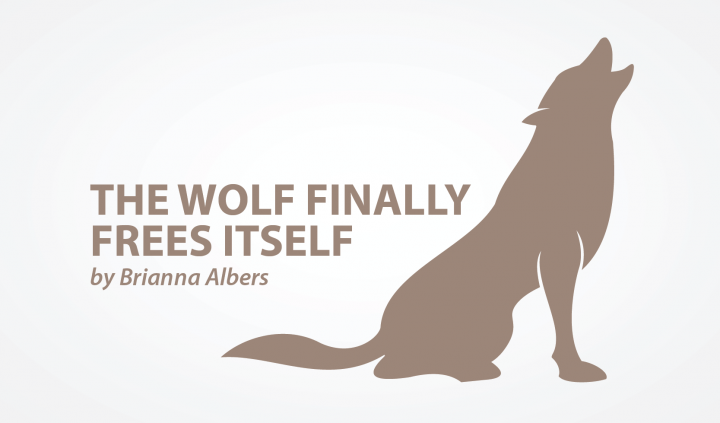Living with SMA Sometimes Means Recognizing Your Own Brokenness

I write a lot about brokenness. I always have. It’s one of the themes of my work, not only as a writer — but also as a (future) mental health professional. Looking back, I’m sure it has a lot to do with my childhood, and the sci-fi shows I watched as a teenager.
I was obsessed with space, so it makes sense that, years later, I am obsessed with the things that set us apart and make the human race unique. It’s why I enjoyed Advanced Placement psychology in high school. It’s why I took social psychology as an English major in college. I didn’t need to, but I missed learning about the machinations of the human brain.
Brokenness speaks volumes. My first email address was [email protected] — painfully adolescent, but an accurate portrayal of my self-concept. I saw myself as broken. The mental illness came later. In middle school, my brokenness was physical in nature: my wheelchair, my lungs, the waver in my voice whenever I spoke in front of a crowd. My body didn’t work the way it was supposed to. Hence, brokenness.
I tried to make up for it. I was a good student, the teacher’s pet. I was a talented writer, so when people read my work and said, “I bet you’ll be a bestselling author one day,” I wore it like a badge of pride. I could write. I couldn’t play on the monkey bars or do pushups in the gym, but I could write. I clung to that, that tiny pinprick of light. And when mental illness came into the picture, I clung to it even more. I wasn’t happy, I didn’t have friends, and anxiety ate me alive, but at least I had my writing! At least I had words.
I saw myself as broken, but I never leaned into it. I felt that, no matter what, it was my responsibility to keep it together. I could be in the emergency room, sucking oxygen through a mask that bit into my skin, and still feel the need to entertain. Crack a joke. Nurses would often comment on my optimism: “She always has a smile on her face!” I laughed, blushed, ducked my head. They didn’t need to know that it was an obligation.
I kept things together. I was the glue. Once, there were 11 nurses in my room, taking vitals, talking with my parents, inserting a urine catheter. I was in the middle of it, propped in a hospital bed, the eye of the hurricane. The winds surged around me, its gravitational center.
I could write about trauma, how it gifts you with the superpower of anxiety. My dad calls it “my Spidey senses.” I know when something’s off, and because I’m me, I assume it’s my fault. When tensions are high, I step into the role of comic relief. I entertain. I crack a joke. I point out the elephant because if there’s one thing I’ve learned, it’s that no one else will.
I could write about mental illness, growing up with mental illness, the balancing act that is mental illness and physical disability — but it feels more appropriate to write about brokenness. After all these years and my thorough obsession with brokenness, I can’t fully accept it. Physical brokenness? Sure. Mental brokenness? I study it for a living. But emotional brokenness?
I’m the glue. I keep things together. So what happens when the glue dries out? What happens when the tube of Elmer’s glue gets crusty?
I could write about therapy, how I’m continually learning about myself. Last week, my counselor looked me in the eye and said, “When was the last time you let someone carry you?” It’s not something we talk about in the SMA community. We warn against caregiver fatigue, but we don’t consider what happens when the patient becomes the professional. I’m attuned to the energy of those around me because I know that, in my line of work, things splinter: the vein blows, the doctor is an hour late, and jokes become necessary. I’ve become adept at the delicate art of pricking a balloon, letting the air out without popping the skin.
I write about brokenness because it is intrinsic — to me, to humanity. But I am always so scared to recognize it in my own life. It is humbling to realize that, no matter the brand, glue always dries out in the end.
***
Note: SMA News Today is strictly a news and information website about the disease. It does not provide medical advice, diagnosis, or treatment. This content is not intended to be a substitute for professional medical advice, diagnosis, or treatment. Always seek the advice of your physician or other qualified health provider with any questions you may have regarding a medical condition. Never disregard professional medical advice or delay in seeking it because of something you have read on this website. The opinions expressed in this column are not those of SMA News Today, or its parent company, Bionews Services, and are intended to spark discussion about issues pertaining to spinal muscular atrophy.








Leave a comment
Fill in the required fields to post. Your email address will not be published.